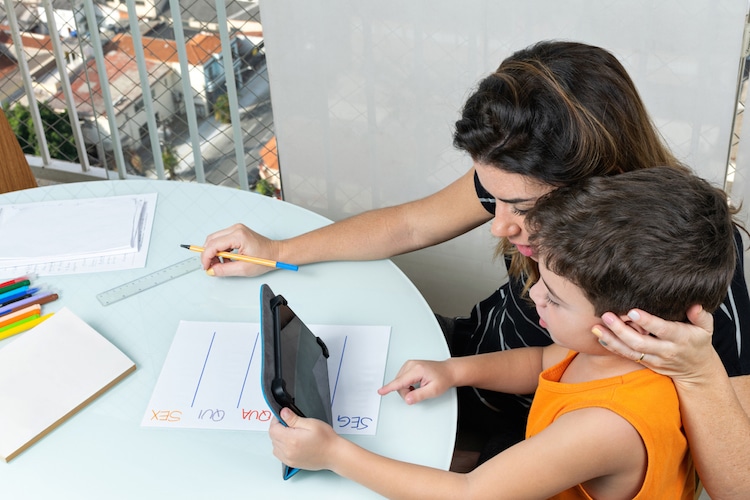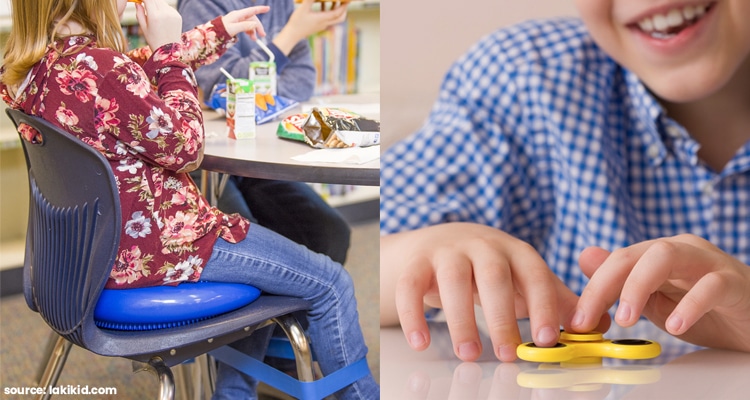It’s one of the biggest ironies about working from home. You think you’d have more time looking after your kids (if you’ve got them, that is), but that’s not exactly the case. When you’re juggling deadlines and having to get your tots fed, bathed, and dressed in time for school, the arrival of the school bus soon brings secret relief.
However, if you homeschool your kids, there’s no such escape. And with the covid-19 pandemic making it nearly impossible for schools to reopen, parents don’t exactly have a choice right now.
Managing your kids while holding down a job or running a company (something that’s increasingly become a luxury) is hard enough. Ensuring that their online classes go smoothly as you try to keep your business afloat from home requires nothing short of miracle.
Because the truth is, online learning is hard on everyone. It’s a viable alternative, but it can be a poor substitute for actual classes at school.
Kids with special needs, along with their parents, are likely to suffer from the abrupt shift even more than their peers. It’s not exactly safe or practical for especially-trained teachers or tutors to come by the house every day, is it?
Fortunately, there are a lot of useful tips for WFH parents guiding their kids through online learning. Here are just some of the most common ones:
1. Lean on routines.

They will get you through the day more than you think. Kids with special needs are attached to them because a fixed point gives them stability, especially amidst huge changes that they might find hard to understand or accept. Distance learning is no exception.
You don’t have to replicate your kid’s school routine perfectly, but it helps to maintain some structure. Think having fixed schedules for starting and ending school days, assigning and fixing up your kid’s work desk, and so on.
2. Have a designated study space for your child.

Whether you can set aside a whole room as a classroom area or a special place at the kitchen table, a designated environment will establish important cues. Primarily, it’s that when they’re there, your kids should study and focus.
For best results, make sure the area is free of unnecessary clutter. School books, writing materials, notebooks, and the required devices ought to suffice. Keep toys, cutlery, and things that don’t really belong there out of the designated learning space.
3. Keep in touch with your child’s special education teachers.

They can be a lifesaver at this time. Make sure you have their email addresses or mobile numbers and check in regularly. Don’t be shy about asking them for their lesson plans or consulting with them about breaks, check-ins, and assessments.
These teachers have had special training for educating kids with special needs, and their insights will make the process more manageable.
4. Pattern your child’s schedule at home after their school’s.

If you can, email your child’s school and ask for a copy of their usual schedules. Replicating even a small part of it can give your kids a sense of normalcy and continuity.
On the other hand, acknowledge that these are extraordinary times. Don’t feel pressured to keep up an eight-hour school day at home and make allowances for certain emergencies. The best thing you can do is to maintain a similar sequence of events and activities throughout the day, but make adjustments as needed.
5. Take breaks regularly.

These are equally important as lectures and activities. It’s hard enough for most kids to maintain a steady attention span for hours and hours, let alone amidst a global pandemic. They will need time between subjects to reset and absorb information.
Don’t forget to take breaks too. You’ll go stark raving mad if you don’t.
6. Consider investing in accessories or furniture that might make things easier for your kid.

Does your child have difficulty focusing? Try introducing sensory chairs, fidget toys, and noise-cancelling headphones during their study periods. Kids on the spectrum, on the other hand, might benefit greatly from a well-ordered desk, name tags, and properly-labeled books.
7. Take things one step at a time.

Leave enough time for you and your child to get used to one teacher or one counselor before you introduce others. Don’t be afraid to ask for any helpful resources that you can borrow or use at home too.
This then brings us to the next step….
8. Don’t hesitate to ask for help.

It takes a village to raise a child, let alone educate one. Aside from your child’s teachers or counselors, there are also various support groups online for parents like you. They’re usually composed of parents of children with special needs that are all too happy to share their knowledge and advice. Join as many as you find helpful.
9. Embrace different kinds of learning activities for your child.

Generally, you should still watch out for excessive screen time, but tablets can be just as useful as textbooks these days. Youtube, for instance, has a wealth of educational videos and e-books are a compact alternative to thick, heavy textbooks.
Physical exercises and activities can be a great way to illustrate certain lessons too. They can even provide some much-needed variety amidst all the online lectures.
The best learning activities integrate your child’s special interests. All it takes is a little creativity and patience.
10. Try if/then statements if your child struggles to complete tasks.

These simplify things. For example, if your kid gets their homework done on time, they can get an extra half an hour on the tablet.
The only thing you need to figure out is which if/then statement is especially effective for your child.
11. Understand that some days will be harder than others, and that it’s okay.

Sometimes, you won’t get anything done and neither will your child. That’s fine. We are in the midst of a pandemic and everything’s up in the air. You are no less of a parent when that happens, and neither will it make your child any less amazing.
Have you got your own useful online learning hacks? Care to share them, along with your own experiences as a WFH parent of a child with special needs to help other parents? Go ahead and comment below!
Serena has been working remotely and writing content for the better part of the last decade. To date, she's written for Pepper.ph and Mabuhay Magazine, among others, and has churned out more than a thousand articles on everything from The Basics of Stock Market Investing to How to Make Milk Tea-Flavored Taho at home.




















